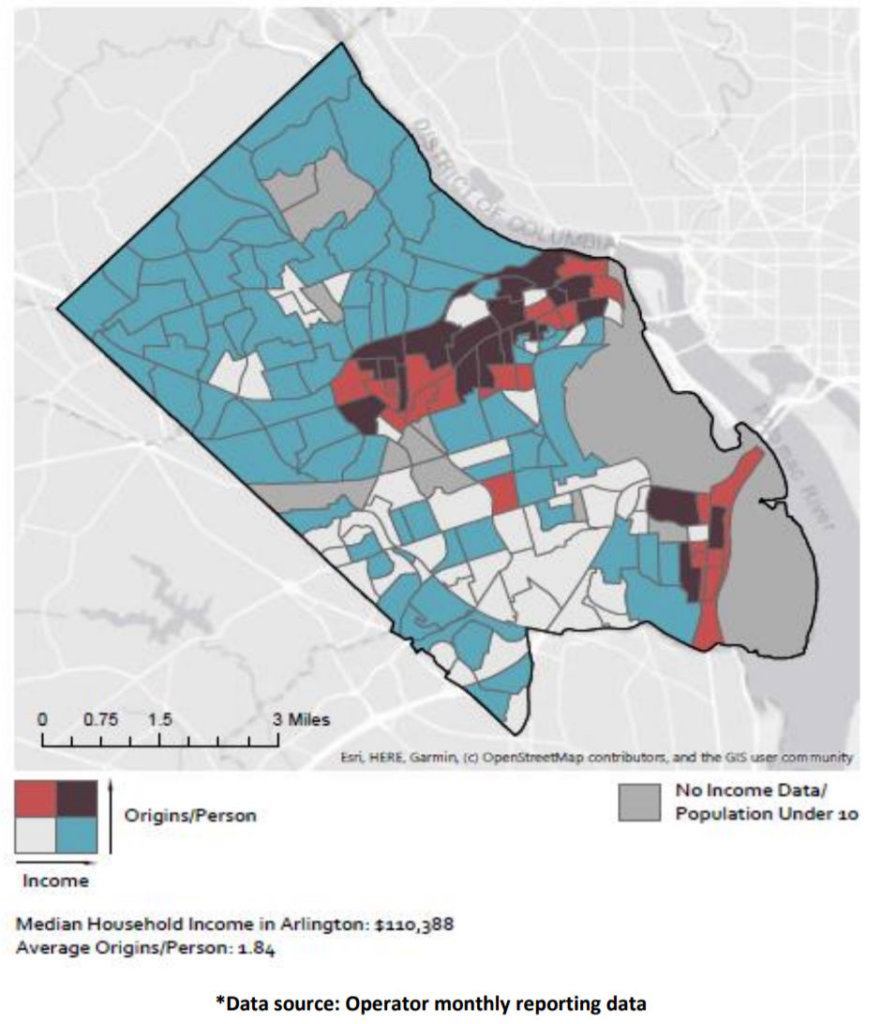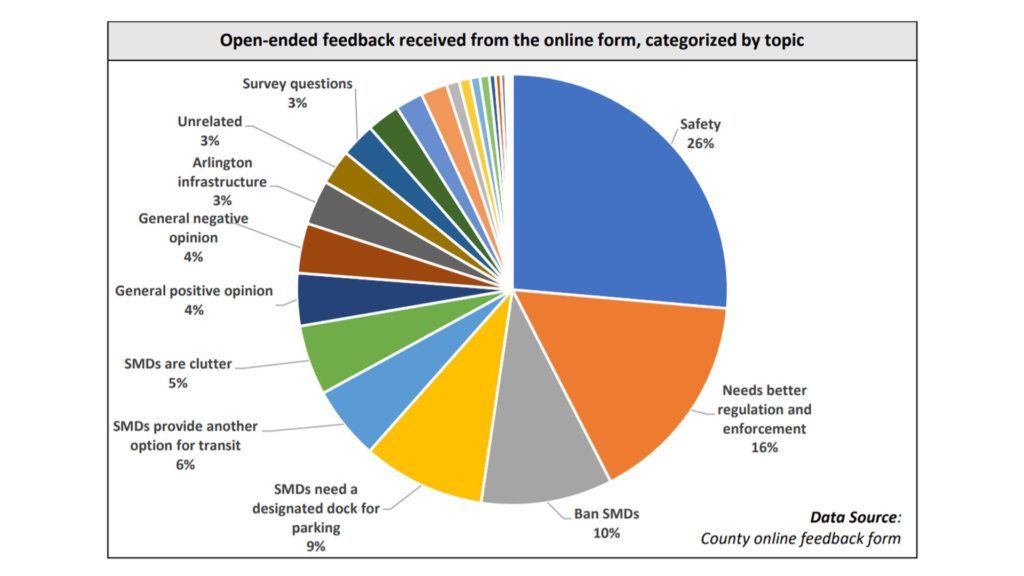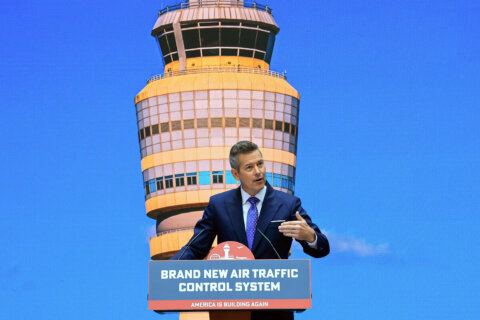Love them or hate them, electric scooters and bikes are omnipresent in the D.C. area. While they’re popular and continue to provide commuters with alternatives, improvements to their implementation are needed in Arlington, according to a recent report on the county’s pilot program.
One determination found by the Arlington Mobility Lab report is that e-scooters and bikes need to be more evenly distributed among upper- and lower-income areas of the county. That comes from the discovery that many trips start in neighborhoods below the median income level.

“Results of the pilot confirm that shared mobility devices are popular, with high number of trips and adoption, they are positively perceived by those who them and could provide sustainability and equity benefits as it increases active transportation and access,” the report said.
“Certain aspects of the pilot have shown more mixed results, with inconclusive results as to a clear success or failure in terms of performance. This includes the focus on equity concerns (with a disparity in normalized deployment between North and South Arlington), and the clear communication of rules and regulations to the Arlington community.”
Protected bike lanes and infrastructure improvements are also needed. Many riders feel it’s irresponsible to use scooters on the sidewalk but the roads are too unsafe, and residents are concerned about parking and clutter from the program.

Here are eight main recommendations presented by Mobility Lab:
(1) Accelerate infrastructure investments to address rider and community safety and comfort concerns, while focusing on available route detail data.
(2) Continue working on innovative ways to address parking.
(3) Create, monitor, and refine equity expectations, going beyond geography.
(4) Focus on and invest in communicating the rules and regulations to the public, including riders and nonriders.
(5) Continue monitoring operations and requiring complete and robust data from operators.
(6) Share results and county initiatives with the public; make the integration of shared mobility devices (SMD) into Arlington an inclusive and interactive conversation.
(7) Collect or compile more robust data within and outside the SMD program and mandate periodic evaluation of SMD trends.
(8) Undertake additional research or studies including more detailed analysis of specific issues of interest flagged in the pilot evaluation.
The report also found that 453,690 trips were taken in Arlington County, for a total of 425,124 miles, between October 2018 and June 2019. The average trip distance was 0.94 miles; 90% of trips were for less than two miles.
One striking find: 73% of nonriders who responded to Mobility Lab’s survey did not feel safe as pedestrians around riders. For drivers, 76% of them felt “very uncomfortable to uncomfortable” around riders.
Arlington’s pilot program started in September 2018 and has been extended to Dec. 31, 2019.
WTOP’s Megan Cloherty reported from Arlington, Virginia.








